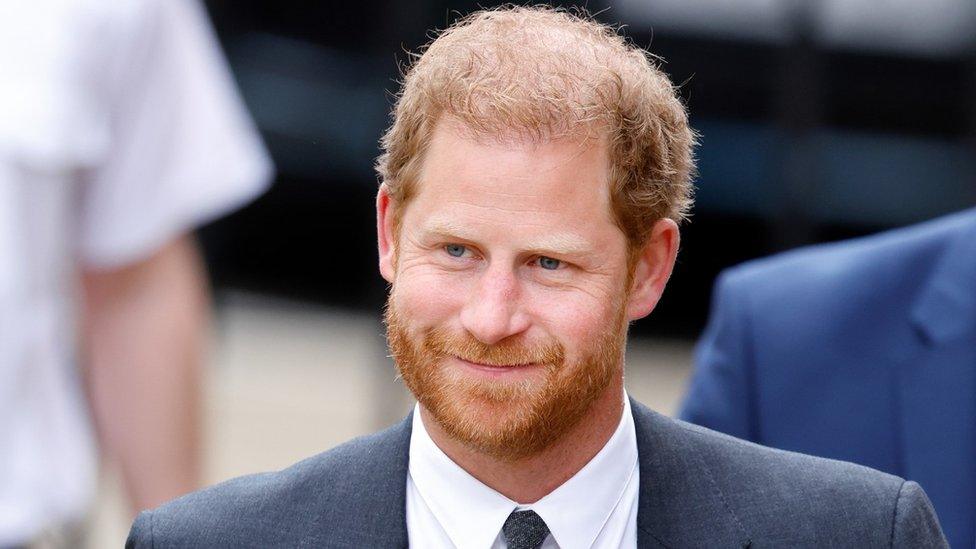Coronation: The school pupils who will proclaim the King
- Published
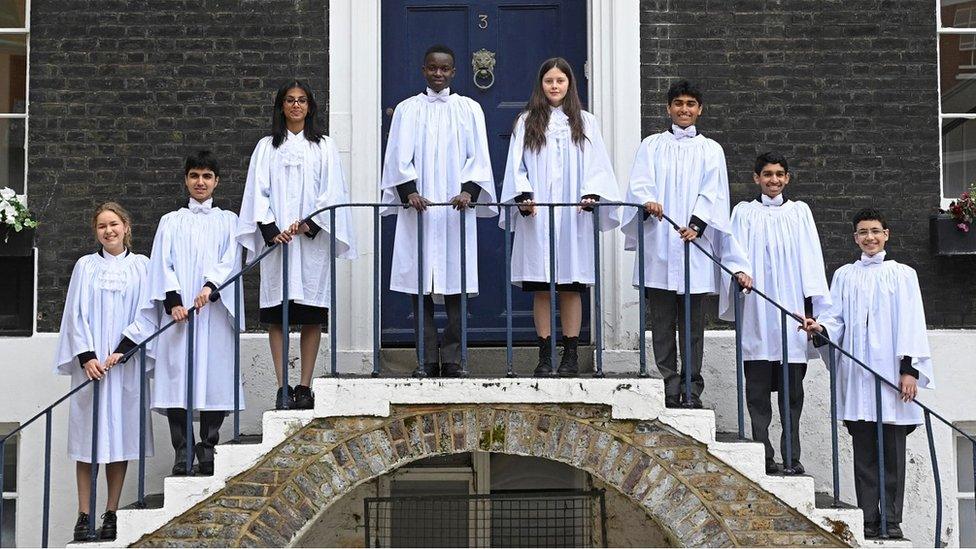
Westminster's King's Scholars will be dressed in special robes for the coronation
As the King enters Westminster Abbey on Saturday, cries of "Vivat Rex!" will ring around the historic hall as has happened at every coronation there for hundreds of years.
The proclamation, which is Latin for "Long live the King", has traditionally been performed at coronations by scholars from nearby Westminster School.
"When I was younger I used to read lots of history and I was really interested in the monarchy, and so the idea that I would one day be able to attend the coronation is just mind-boggling," says 17-year-old Ingrid, one of the pupils involved.
"It's going to be something really, really spectacular and really fabulous to witness in the flesh."
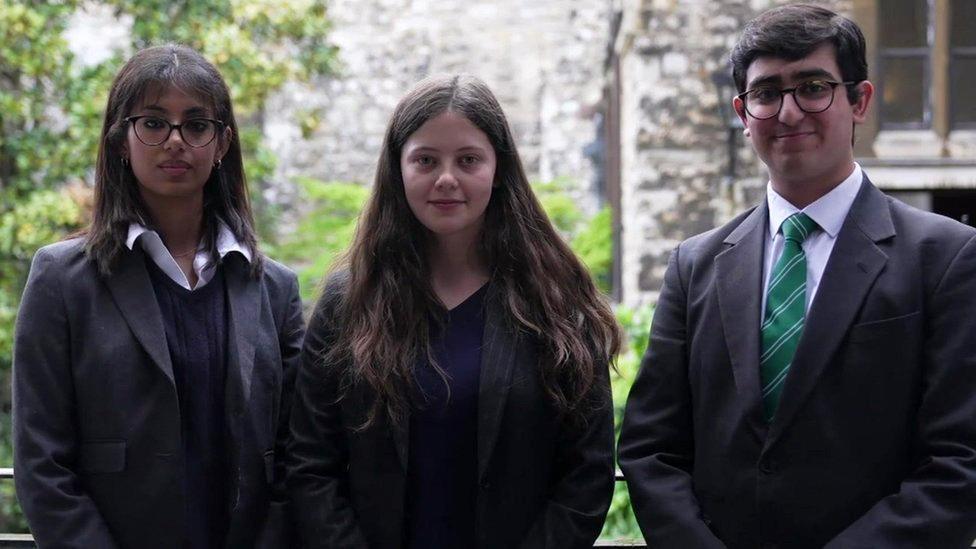
Ingrid, Ira and Raaghav (l-r) are among the students who will be singing the Vivat
The scholars' proclamation was first officially recorded in 1685 for the coronation of James II. However, they are thought to have featured in services before that having initially been established by Henry VIII and then confirmed by his daughter Elizabeth I in 1560.
The school has grown substantially since those days but the academic scholarships still exist, with pupils sitting exams and 12 new scholars being chosen each year. Currently there are 48 in total.
Raaghav, another pupil who will be taking part, says being a scholar is "not really too much different in normal day-to-day life" compared to other students, but it is when they take part in events in Westminster Abbey that they particularly stand out.
"That's when our role really comes into its character, where we have to wear particular clothes, say particular things.
"That's when we can really feel the historic connection to our predecessors and that's what makes it so special," he says.
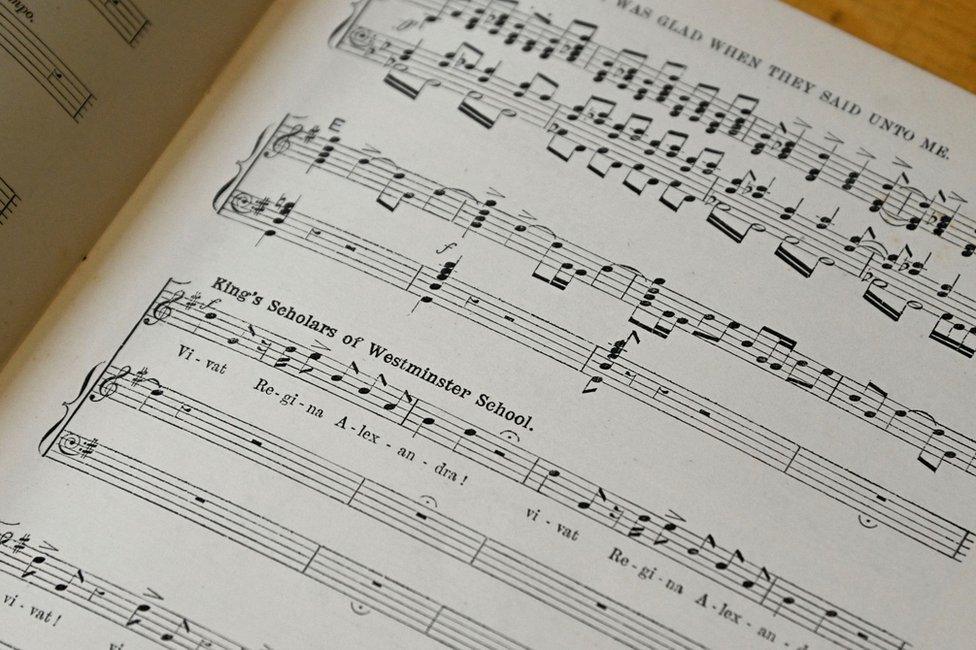
The cries of Vivat were first incorporated into the Coronation Anthem, I Was Glad, for the coronation of Edward VII in 1902
Previous scholars have included England's first poet laureate John Dryden, Winnie-the-Pooh creator AA Milne and composer Andrew Lloyd Webber, although it is a rare privilege to be a scholar when a coronation takes place.
That being said some previous Westminster students have found a way to be part of the big event; there was a tradition in years gone by of sneaking into the Abbey after dark in an attempt to spend the night in the coronation chair.
Some even carved their names in the wood, including Thomas Pelham who would become prime minister in 1754.
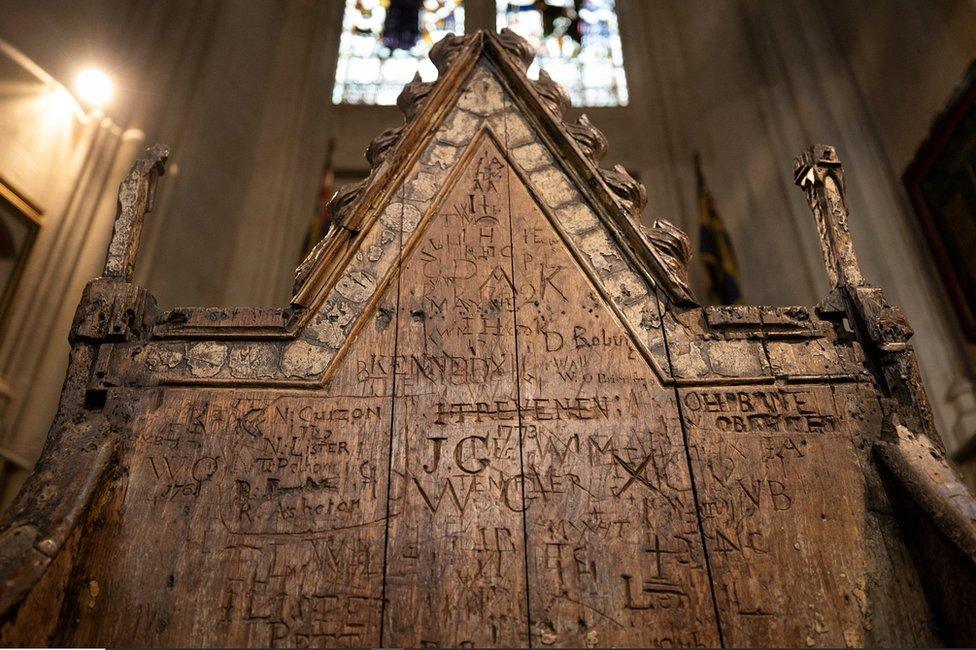
Some of the graffiti that covers the coronation chair is the work of Westminster School students
The scholars' proclamation during Saturday's ceremony will be incorporated into the coronation anthem, I Was Glad, by Hubert Parry, as has happened since the 1902 service for Edward VII. (You can hear how it sounded at Queen Elizabeth II's coronation from 26 minutes into this YouTube video, external.)
In a reflection of the general theme of King Charles III's coronation, where the traditional is being mixed with the modern, the pupils' performance will this time feature girls - the first female scholars having been selected at the school in 2017.
This makes sense to 17-year-old Ira, who will also be among those performing.
"I think it's time to show the world that this is a world moving in the direction of equality," she says.
"Being scholars, being part of a coronation, is a continuation of tradition and it shows how traditions have to be able to adapt to a modern and changing world."

Follow BBC London on Facebook, external, Twitter , externaland Instagram, external. Send your story ideas to hellobbclondon@bbc.co.uk, external
- Published4 May 2023
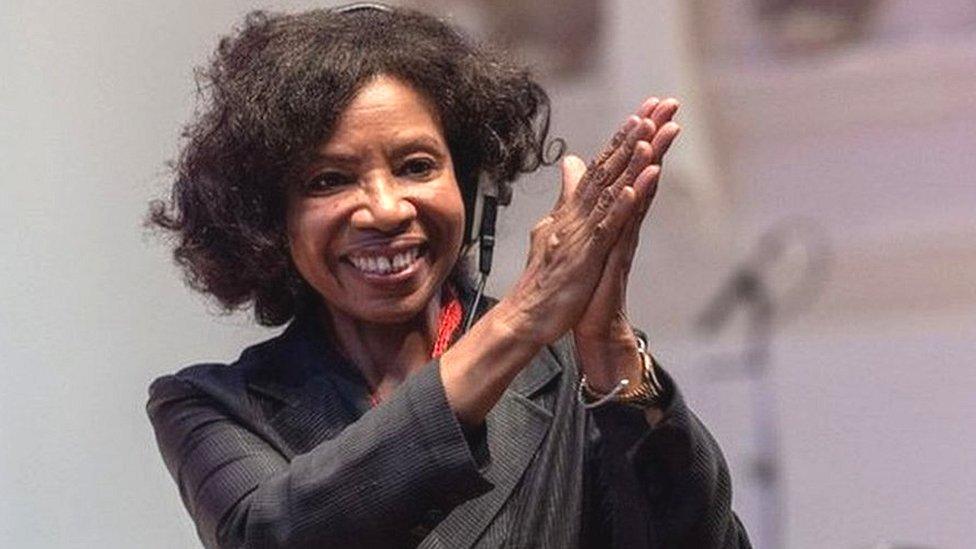
- Published6 May 2023
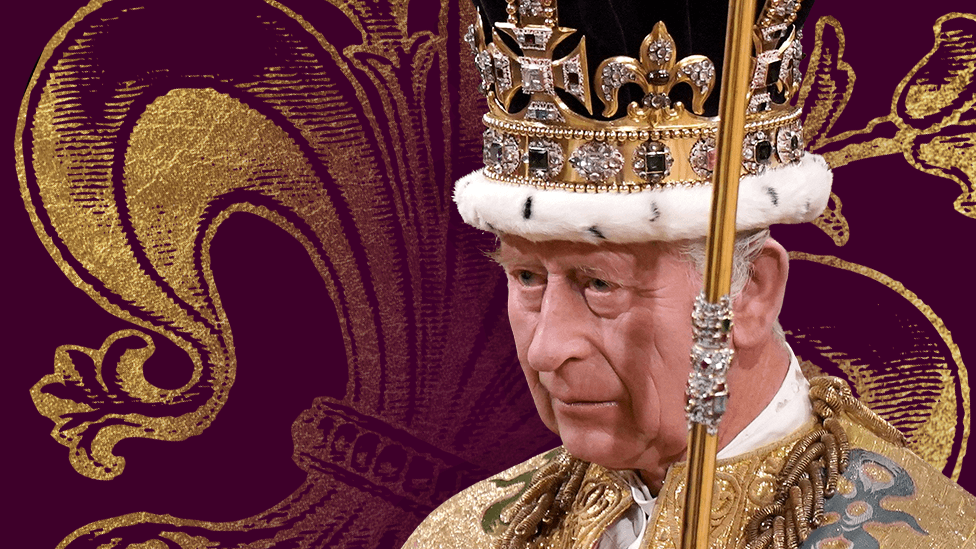
- Published6 May 2023
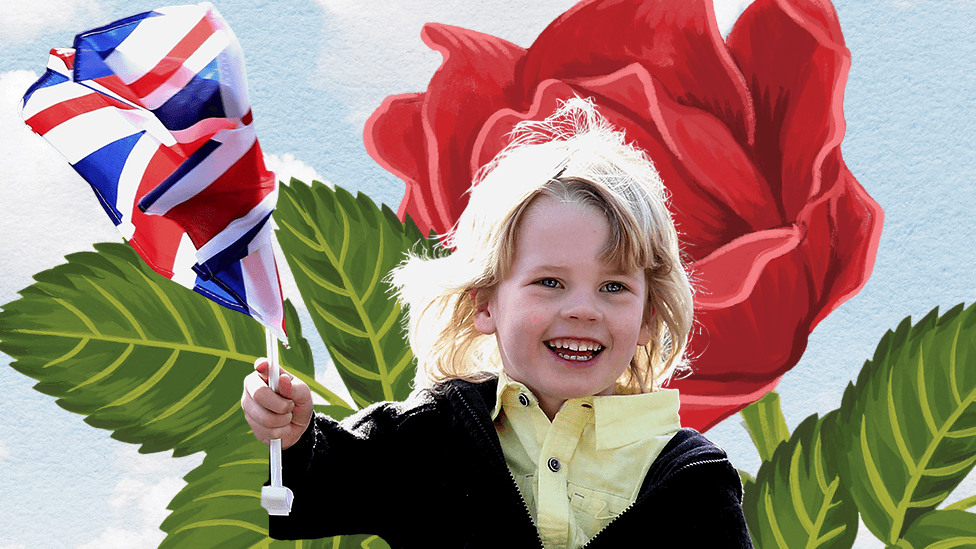
- Published2 May 2023
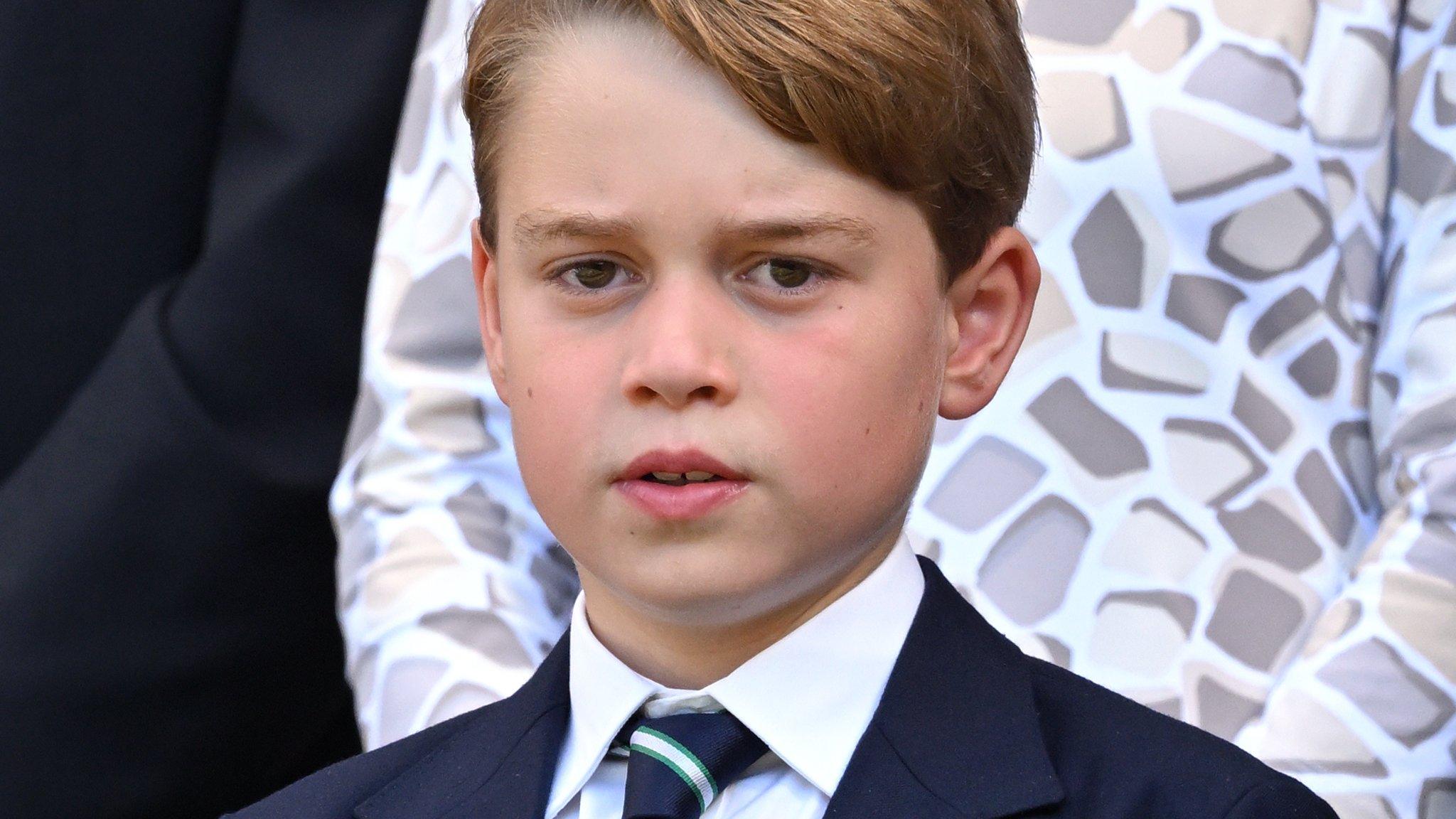
- Published6 May 2023
